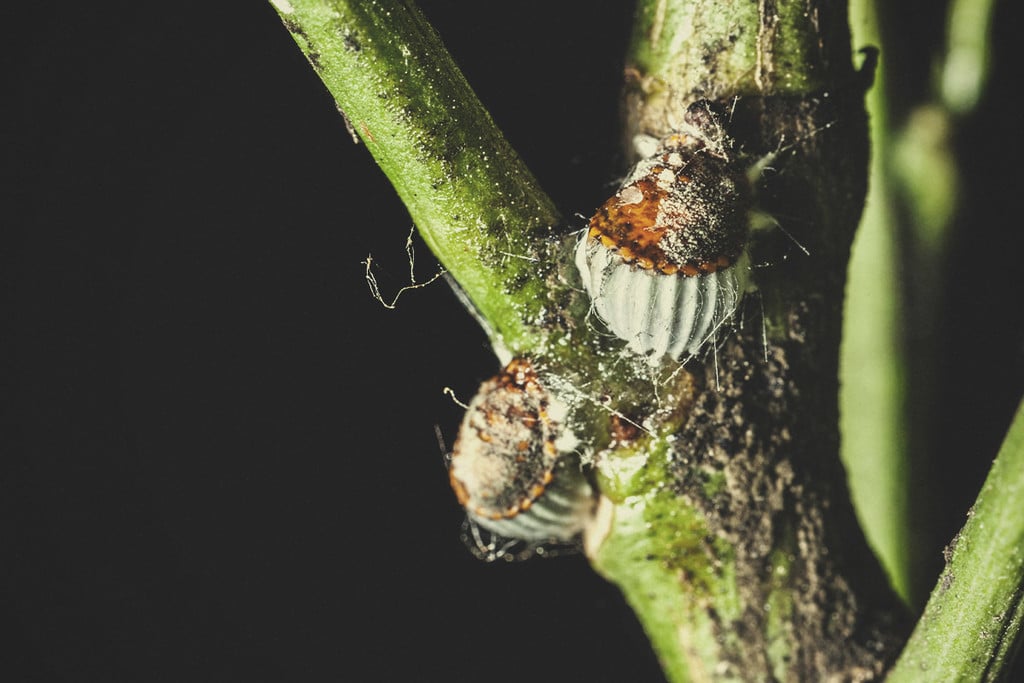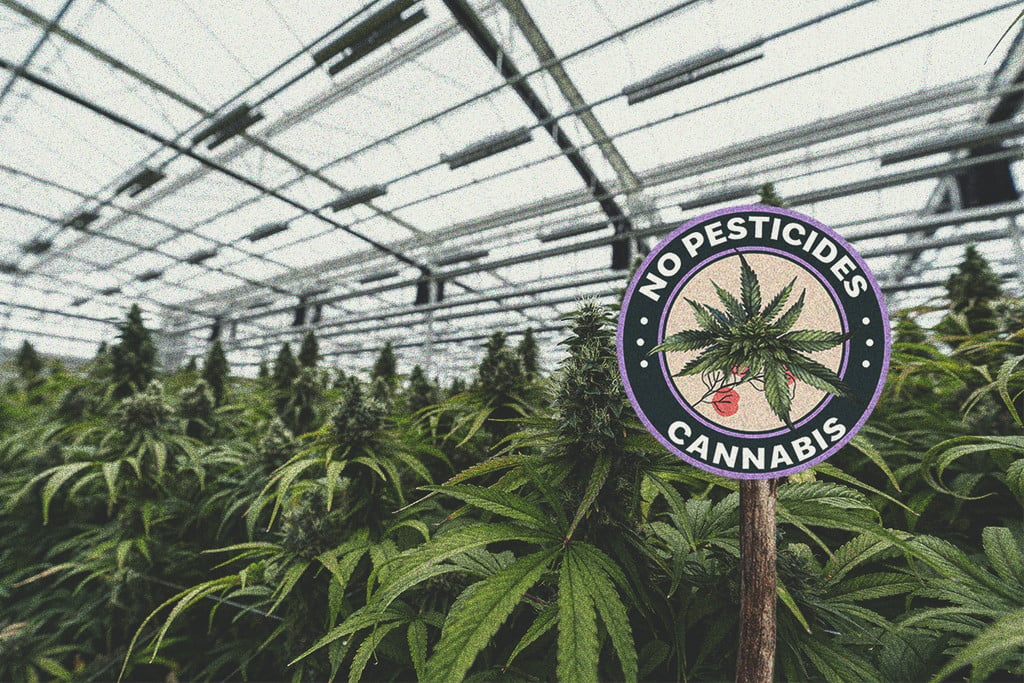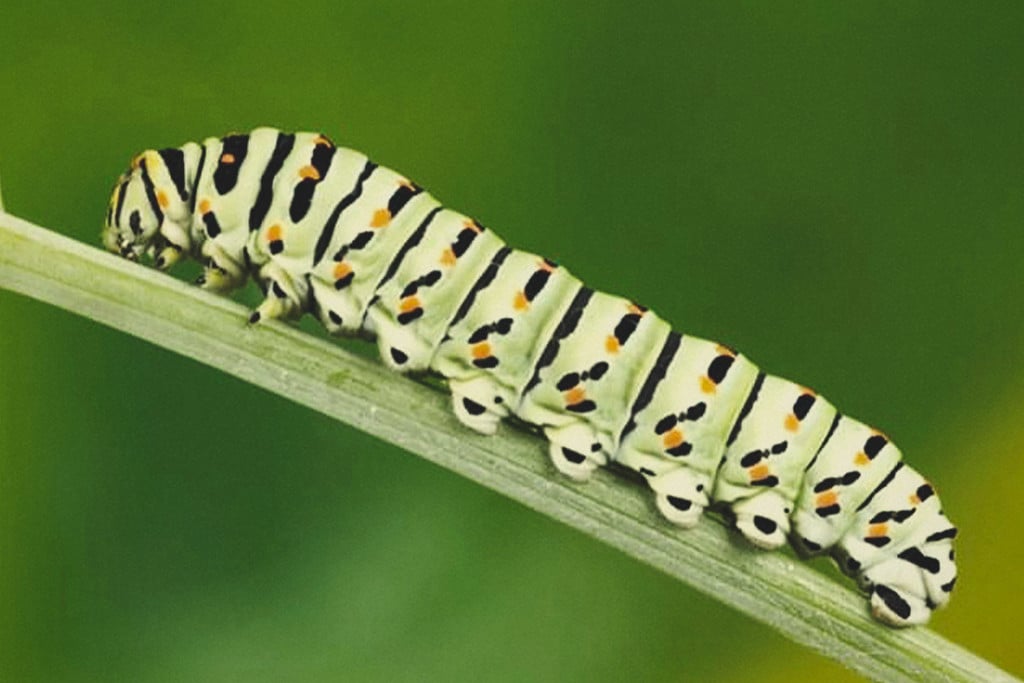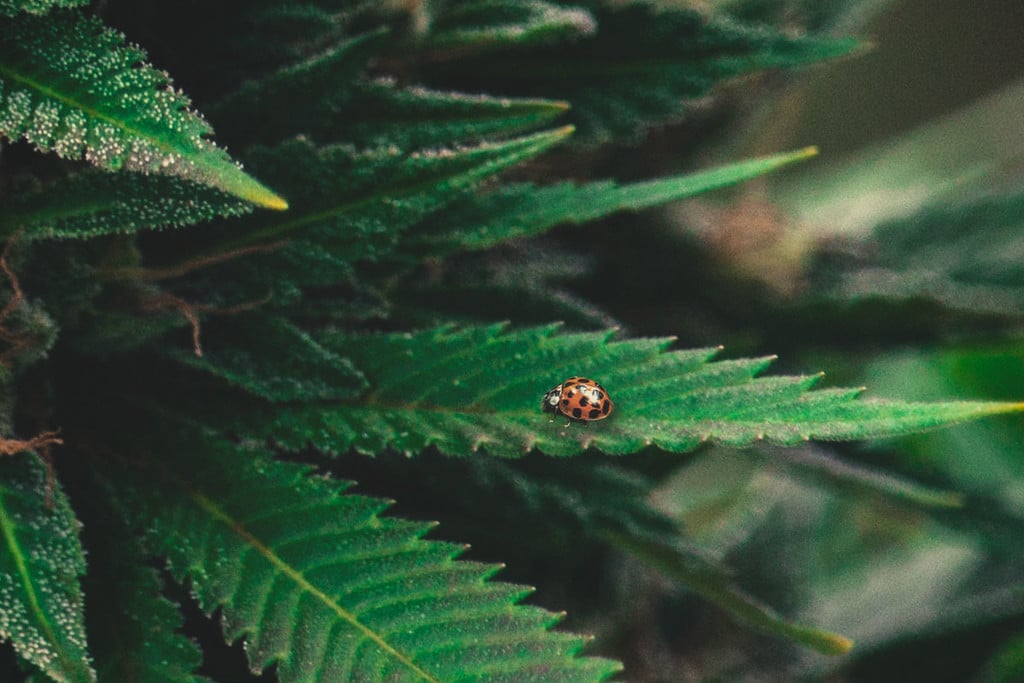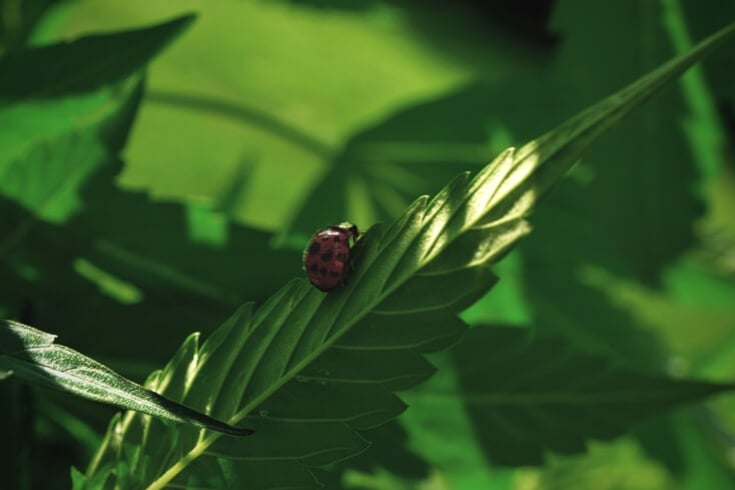.
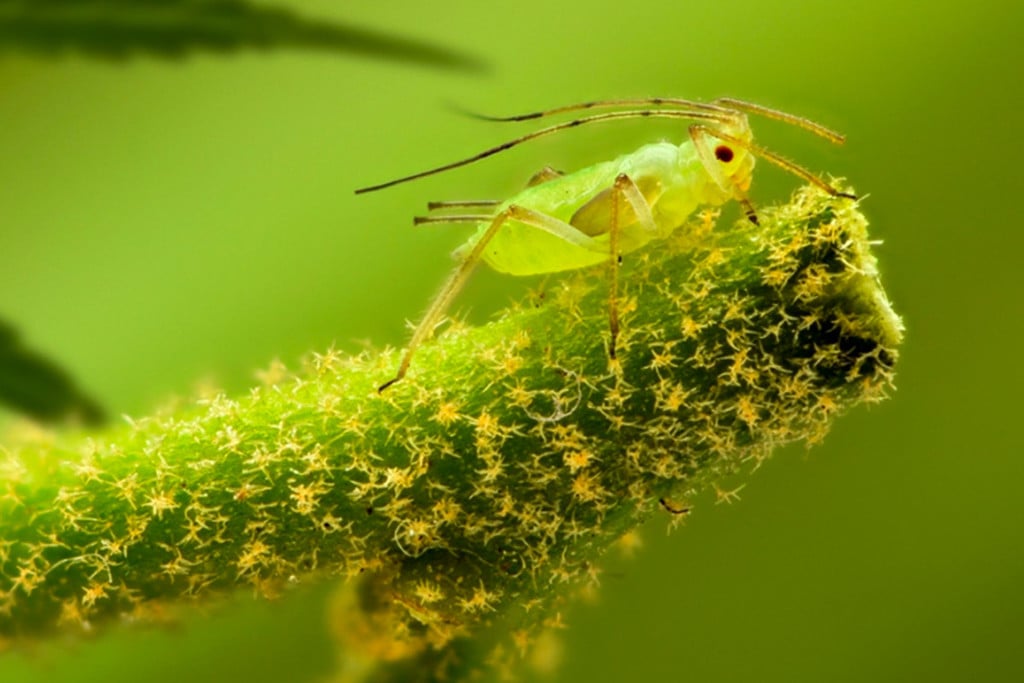
How To Spot, Treat, And Prevent Aphids On Cannabis Plants
Aphids are a common pest affecting cannabis growers around the world. Read on for a detailed look at what they are, how to spot them, and how to control and protect your cannabis plants against an aphid infestation.
Cannabis gardeners, like regular gardeners, are always on the lookout for pests that might hinder the development of their plants.
In this article, we look at aphids, a common garden pest that can have detrimental effects on your cannabis grow. We’ll show you exactly what aphids are, how to spot them on your plants, and how to control/prevent them.
For more articles like this, remember to bookmark our blog. To order the highest quality cannabis seeds direct to your door, visit the Royal Queen Seeds webshop today.
For more information on cannabis pest control, check out this previous article on our blog.
WHAT ARE APHIDS?
The term aphid is used to refer to a group of small sap-sucking insects that count as one of the most destructive pests on cultivated plants.
Aphids can vary in size from roughly 1 to 10 millimetres and can be green, black, red or white in color. The most common kind of aphids found in home gardens are usually green and about 1 millimetre long.
They have two whip-like antennae at the tip of the head and oppositely a pair of tube-like structures, called cornicles.
Winged female aphids usually hatch at the beginning of spring and give birth to more female nymphs. Within a few weeks, these nymphs give birth to more young. This process is repeated several times, allowing aphid numbers to rise dramatically in a short amount of time.
By the end of the summer, aphids develop sexual forms (males and females) and mate to produce overwintering eggs. Most aphids, except for the sexual forms, do not need to mate in order to reproduce and are able to produce live young.
There are over 4,000 aphid species found around the world. Some aphid species are capable of developing wings.
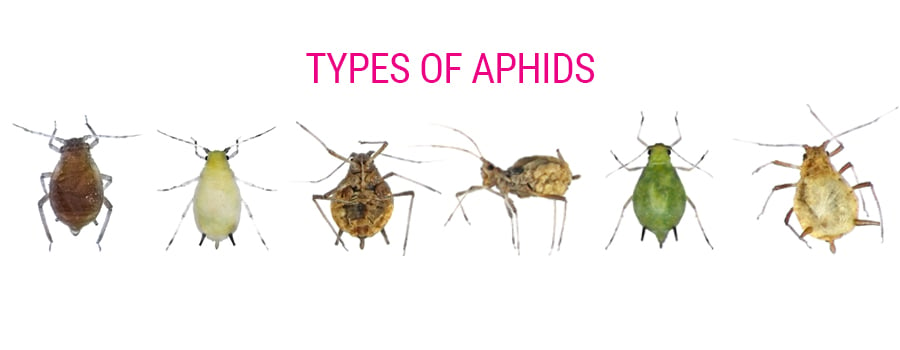
HOW TO SPOT APHIDS ON CANNABIS PLANTS
Aphids can usually be seen on the leaves and stems of cannabis plants. Green varieties may be harder to spot. They especially like hiding on the underside of leaves, away from direct sight.
Aphids feed by sucking sap from plants, leaving behind a thick, sticky substance called honeydew, which can promote the growth of a black, sooty mold. Honeydew also attracts ants, which may protect aphids from any predatory insects and thereby make an infestation even worse.
When feeding, aphids can cause leaves to curl, wilt or yellow and stunt plant growth. Aphids are also capable of transmitting diseases which they pass on when they feed on new plants.
HOW TO CONTROL/PREVENT APHIDS IN CANNABIS
Small aphid populations are usually not a big concern. However, aphids are able to reproduce extremely quickly and large infestations can have a huge impact on the health of your cannabis plants and their ability to develop.
Aphids are introduced into gardens by winged “colonisers” which quickly lay eggs on new plants they wish to colonise. While it’s always best to prevent a pest infestation than control one, aphids can be particularly hard to prepare against. Outdoor gardens are usually more at risk of an aphid infestation.
As we mentioned earlier, winged female aphids usually hatch in spring while new female and male aphids usually lay overwintering eggs at the end of summer. If you want to protect your garden against any kind of pest infestation, it’s always best to ensure that your grow environment isn’t “attractive” to pests.
Most garden pests like warm, humid conditions and stagnant air. It’s therefore always important to ensure your grow room is kept at the right temperatures (between 20 and 25ºC is ideal) and you should install a few fans or a ventilation system to ensure plenty of airflow.
However, to best protect against an infestation, try some of the following tips and keep an extra eye out for aphids during spring and late summer.
PRUNE AND CLEAN ANY INFECTED AREAS
If you spot aphids on your plants, a good first step to dealing with the infestation is to prune off any infested areas and disposing of them immediately.
Once you’ve pruned the plants, you’ll also want to hose them down with water, or a water-vinegar solution that will kill any remaining insects.
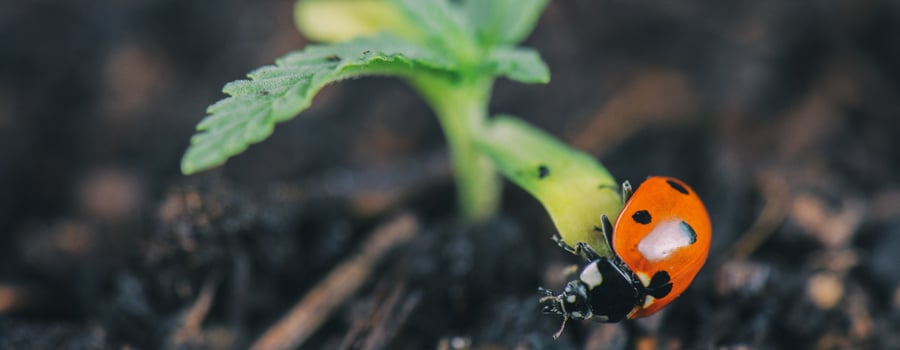
INTRODUCE PREDATORY INSECTS
Ladybugs, hoverfly larvae, parasitic wasps, aphid midge larvae, crab spiders, and lacewings all naturally prey on aphids and many other pests (such as spider mites and whiteflies).
We recommend introducing some of these insects to your garden during spring and late summer to best prevent an infestation. If you’ve already detected aphids on your plants, it’s usually too late to rely on predatory insects.
Instead, follow some of the other tips below and, once you’ve dealt with an infestation, reintroduce predatory insects into your garden to prevent another infestation in the future.
USE ORGANIC INSECTICIDES
As with any other garden pest, we recommend staying away from chemical pesticides as they usually aren’t safe to use on cannabis plants. Instead, try using some of these options.
Essentria IC3: Combining a variety of horticultural oils, Essentria IC3 is an organic insecticide we always recommend having on hand. It can be directly applied to plants and can help to control many regular pests, including spider mites, whiteflies, and aphids. However, it usually remains active for 8-12 hours, so we always suggest you use it daily until an infestation has been completely controlled.
Spinosad: All Spinosad products are completely organic and should form part of every cannabis growers grow tools. Like Essentria, Spinosad can be sprayed directly onto your cannabis plants and will kill most garden pests on contact. Once you’ve taken care of an infestation you can also add Spinosad to your plants’ water supply to protect them from pests in the future.
Insecticidal soaps: Insecticidal soaps are ideal for spot-treating infected plants. They can take care of most regular garden pests (like spider mites and whiteflies) but shouldn’t be applied directly to any cannabis buds. Like with Spinosad and Essentia, we suggest using insecticidal soaps at least twice to ensure you’ve completely removed all aphids on your plants.
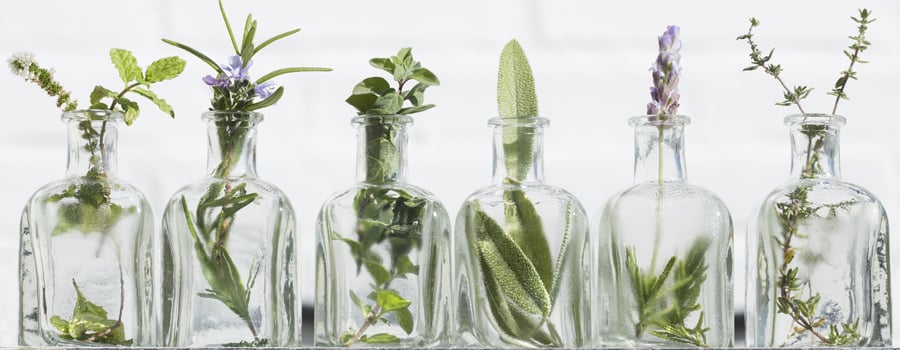
TREAT YOUR CANNABIS PLANTS WITH OILS
Some gardeners swear by using horticultural and essential oils to treat garden pests like aphids. Neem oil is very commonly used in pest protection, but there are a variety of other oils rumoured to do the trick as well, including eucalyptus, rosemary, lemon, and cinnamon oil.
Simply mix any of these oils with water and apply them evenly to your plants with a mister. Most essential oils contain properties that will affect pests on contact. Just be careful not to get any aromatic oils on your buds as they will affect their aroma profile.
Alternatively, you may also want to treat your plants regularly with horticultural oils. We generally recommend using vegetable oils, such as canola, soybean, or cottonseed. These are usually less likely to alter the smell of your buds.















































